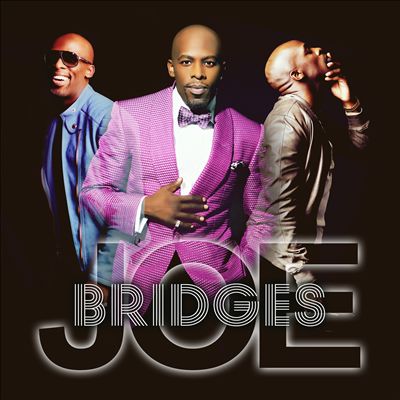
Artist, ambassador, rapper and revolutionary: From the beginning, Wyclef Jean strove to become a catalyst for change both in his native Haiti and in the genre of hip-hop. As one-third of the Fugees (along with Pras and Lauryn Hill) and a producer-performer in his own right, the 38-year-old Mr. Jean has sold millions of albums and collaborated with a dizzyingly diverse roster of talent, including Whitney Houston, Shakira and Mick Jagger. (Last year’s crazy-catchy single with Shakira, “Hips Don’t Lie,” earned a Grammy nomination and held the No. 1 position on Billboard’s airplay chart worldwide for a record 20 weeks.)
A decade after his solo debut, The Carnival (fully titled Wyclef Jean Presents the Carnival Featuring Refugee All-Stars), Mr. Jean is back with his sixth release, Carnival Vol. II: Memoirs of an Immigrant. It’s a swagger-fueled return to his hip-hop roots with an eclectic assortment of guests, including Texans Chamillionaire and Norah Jones, as well as Akon, T.I., Paul Simon and – brace yourself – Louis Farrakhan.
The CD takes on some of today’s toughest political issues, including immigration and post-9/11 paranoia.
“This album is my Exodus, my What’s Going On,” Mr. Jean explains from his hotel suite during a recent visit to Dallas. Just in from Houston, the rapper is decidedly bling-free, barefoot and wearing a plain white T-shirt with gray sweats. After ordering a meal, he lies across the sofa and continues in his slow, reflective patois.
“When you get on an airplane,” he says, “you can’t take your water with you, you’re stripped butt-naked before you board and status remains in high alert, so there’s no way to ignore the issues going on around you. I was like, ‘Let’s put it out there, but how can we translate that positively?’
“There’s a lot of high-energy tracks and then a lot of acoustic stuff. For example, if you liked ‘Gone Till November,’ then you might check for ‘Heaven’s in New York’ with Paul Simon. There’s Chamillionaire with a symphony from India, there’s T.I. put to an acoustic guitar, so it’s like I bring everybody into my world.”
The CD also features a duet with Mary J. Blige, their second (the first was the bittersweet “911” in 2000). This time around they join voices on “What About the Baby,” about a couple’s private drama that threatens the entire family unit.
“An unfaithful man’s been kicked out of the house and calls to speak to his daughter; the wife picks up and tells him that if he wants to come back, there are rules to follow and that he needs to respect them,” says Mr. Jean, who is married and has a 2 ½-year-old daughter. “It’s going to be a great anthem because we complain about what these kids are doing, but we never blame ourselves as parents. What happened to the baby that makes them want to … take drugs or not want to learn? A lot of times, we’re just thinking about ourselves and not about the babies out there.”
Does that mind-set signal a desire to censor hip-hop? Should rappers shun profanity, or should it be their choice?
Between bites of salmon and swallows of cranberry juice, Mr. Jean remains diplomatic on the issue. He says he agrees with Def Jam co-founder Russell Simmons “in that if you want to sit down with your daughter and listen to the radio, the song should be clean.” Mr. Simmons has called for certain words to be removed from radio-edited versions of some rap music.
But Mr. Jean adds: “Then there are situations where it’s not public radio, it’s satellite, so there should be more freedom to say what you want to say. You know if you want to watch an adult channel where to go, and if you want the raw version of a song, you know where to get it. Liking or not liking the author is your choice, but pick what you like and leave alone what you don’t.”
Almost inevitably, the subject of preferences leads to weighing in on the relevance of hip-hop altogether. In spite of Grandmaster Flash and the Furious Five becoming the first rappers to be inducted into the Rock and Roll Hall of Fame in March, many old-school fans and artists consider today’s hip-hop to be a shell of its former self, a jump-off many use to pursue ringtone revenue or visibility for future film roles.
A slow shake of Mr. Jean’s close-shaven head indicates he thinks otherwise.
“Hip-hop is not dead; maybe we’re not alive. What I mean is, what was going on in the golden era of hip-hop? What is really the difference between ‘The Humpty Dance’ and ‘Soulja Boy’? The only difference is that we’ve gotten older now.
“So to my teenage sister, ‘Soulja Boy’ is her ‘Humpty Dance,’ and her Biggie Smalls is Lil Wayne. Hip-hop is reinventing itself for the new generation, and what we elders are disappointed about is that the variety we used to have, which allowed artists to be creative, no longer exists.”
What really sets him off are certain inexperienced record company reps. “They say: ‘I need a record sounding like Jay-Z this week, next I need one to sound like Eminem. I know you’re from the East, but make a record like you’re from the South.’
“That’s why MySpace had become a great avenue for artists,” Mr. Jean says. “The labels are looking at who’s got the most hits on their page because the pulse of the music now is coming from the Internet. So, no, I don’t think that hip-hop is dead at all.”
Another topic he refuses to consider dead is the much-anticipated reunion of the Fugees, even though the group has yet to start on the follow-up to its record-breaking sophomore album, 1996’s The Score.
With the exception of a 2002 acoustic release, Ms. Hill virtually withdrew from the industry after releasing her multiplatinum solo debut, The Miseducation of Lauryn Hill, in 1998. Her recent (and some would say ill-advised) return to the stage has earned mixed reviews, because her new material is such an abrupt departure from what was created before.
Mr. Jean, who has known her since they were teens, has expressed concern about her behavior, which some have described as erratic.
“I haven’t been able to contact her for over a year,” he says, “but nobody’s stronger than the press or the radio, so I’m hoping that this helps.”
When he’s not performing or opining about topical issues, Mr. Jean serves as an unofficial roving ambassador for Haiti, where he spent his early years, and promotes that country’s social and economic development through his Yéle Haiti foundation.
He’s excited about taking Carnival’s message on the road next year and hopes that his fans will, more than anything, recognize the need to increase the peace.
“What I want you to take away from this album, no matter what slum, what ‘hood, what prison you’re in, is the concept of universal love. It’s time to unite, and through music, that’s going to happen,” he says. “The title is Memoirs of an Immigrant because at the end of the day, that’s what we all are and we shouldn’t be fighting each other.”


